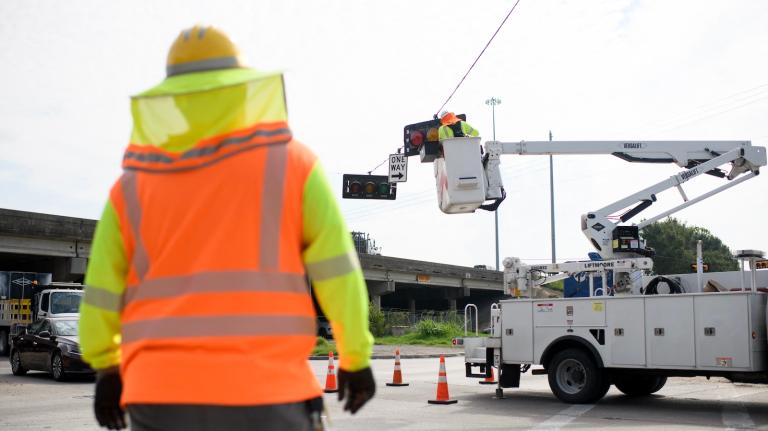 The House of Representatives took up a triumvirate of environment and energy-related bills today, passing two that would increase funding for mass transit and curb oil market speculation. A third, more controversial measure would have forced oil companies to drill on the land they already own.
The House of Representatives took up a triumvirate of environment and energy-related bills today, passing two that would increase funding for mass transit and curb oil market speculation. A third, more controversial measure would have forced oil companies to drill on the land they already own.
The votes highlighted the split between Democrats and Republicans on energy policy. Legislators have been battling for weeks over how to deal with record gasoline prices, with both parties hoping to pass some sort of legislation on the matter before they go into recess next week for the July 4 holiday.
The first vote, on a bill to expand funding for mass transit, passed by a margin of 322-98. It authorize a $750 million increase in funding for 2008 and 2009 for mass transit systems in cities with a population over 200,000 and $100 million for non-urban areas. It would also expand the transit subsidy program for federal employees.
The second vote was on legislation calling on the Commodity Futures Trading Commission to exert tougher oversight of the oil futures markets. In a 402-19 vote, the House approved the resolution, which prompts the CFTC to use its authority to act against “sudden or unreasonable fluctuations” in energy futures prices and trading activities that “prevent the market from accurately reflecting the forces of supply and demand for energy commodities.” Lawmakers argue that hedge funds, pension funds, and entities that engage in energy speculation are responsible for artificially driving up the price of crude oil.
The failed vote was on a bill that would push oil companies to explore on the 68 million acres of public land, onshore and off, that are already leased for drilling. The “Use it or Lose It” legislation failed to muster the two-thirds majority needed to pass the measure, by a vote of 223-195.
The bill would have barred companies from obtaining new leases unless they are developing the tracts they already have dibs on. It’s estimated that 80 percent of the available domestic oil supply is contained in the 68 million acres already open for exploration — an area the size of Georgia and Illinois combined.
Democrats argue that the companies shouldn’t be asking for rights to drill in restricted areas like the continental shelf and the Arctic National Wildlife Refuge if they aren’t exploring and drilling in the land to which they already have access. “Big Oil could drill in millions of acres today without Congress even lifting a finger,” said Rep. Ed Markey (D-Mass.), a cosponsor of the bill, when the measure was first unveiled. “This is yet another drilling decoy proffered by the Republicans and their friends in the oil and gas industry.”
Republicans, who have been pushing legislation to open up more land to oil and gas drilling, largely opposed the measure. “Companies already are actively exploring their currently leased lands, and once they determine that oil or gas reserves are present only then can they actually begin drilling. The entire process can take years,” said House Minority Leader John Boehner (R-Ohio) in a letter to House Speaker Nancy Pelosi yesterday. Some Democrats from oil-producing states were also against the bill, and the White House also issued a statement on Thursday pledging to veto the legislation if it passed.


